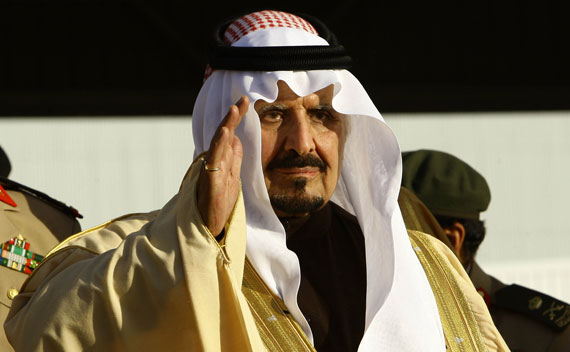Guest Post: The Demise of Saudi Crown Prince Sultan
More on:

My good friend and guest blogger Rachel Bronson weighs in on Saudi Crown Prince Sultan’s death and Saudi succession.
Although the death of Saudi Arabia’s Crown Prince Sultan bin Abdel Aziz al-Saud on Saturday has led to some speculation about the stability of Saudi Arabia, the Crown Prince’s death will actually do much to settle Saudi politics. Sultan’s death will allow King Abdullah to better manage succession in the last few years of his reign.
There are two crucial positions in Saudi Arabia’s succession: the crown prince (the heir to the throne) and the second deputy prime minister. The second deputy prime minister is expected to become crown prince once the crown prince becomes the king. In 2009, King Abdullah named the powerful Minister of Interior Prince Naif second deputy prime minister. It was notable that it took Abdullah four years to do this. Naif has both strengths and drawbacks--he is powerful, and has been a tremendous asset in going after home-grown terrorists, but he is more comfortable with the more conservative and at times retrograde elements in Saudi politics. It seemed that Abdullah may have been looking for a more progressive second deputy prime minister. By 2009, either because he couldn’t find a suitable alternative, didn’t have the internal support to name an alternate, or because he had come to see the value of Naif’s iron fist, Abdullah gave his half brother the nod.
This appointment is why Naif is the front runner to become crown prince. But, and an important but, in 2006, King Abdullah instituted reforms to the succession process in which he created a Bay’ah, or Allegiance, Council which purportedly gives some of his brothers, sons, and nephews greater influence in selecting the next crown prince. In theory the Council could choose a different crown prince, but in practice this is unlikely.
Here’s the good news: Crown Prince Sultan had been sick for quite some time and his incapacity was a problem for leadership. It added insecurity into the succession planning. Many close observers feared that King Abdullah would die before the Crown Prince. Today, and for the next few months, or years, however long Abdullah continues to rule, he can help manage the transition. This will likely lead to a King Naif at some point in the future. But let’s see who Abdullah or the Bay’ah Council positions as Naif’s successor. The King still has considerable power to influence this very important choice.
Rachel Bronson is the Vice President, Studies at The Chicago Council on Global Affairs.
More on:
 Online Store
Online Store
